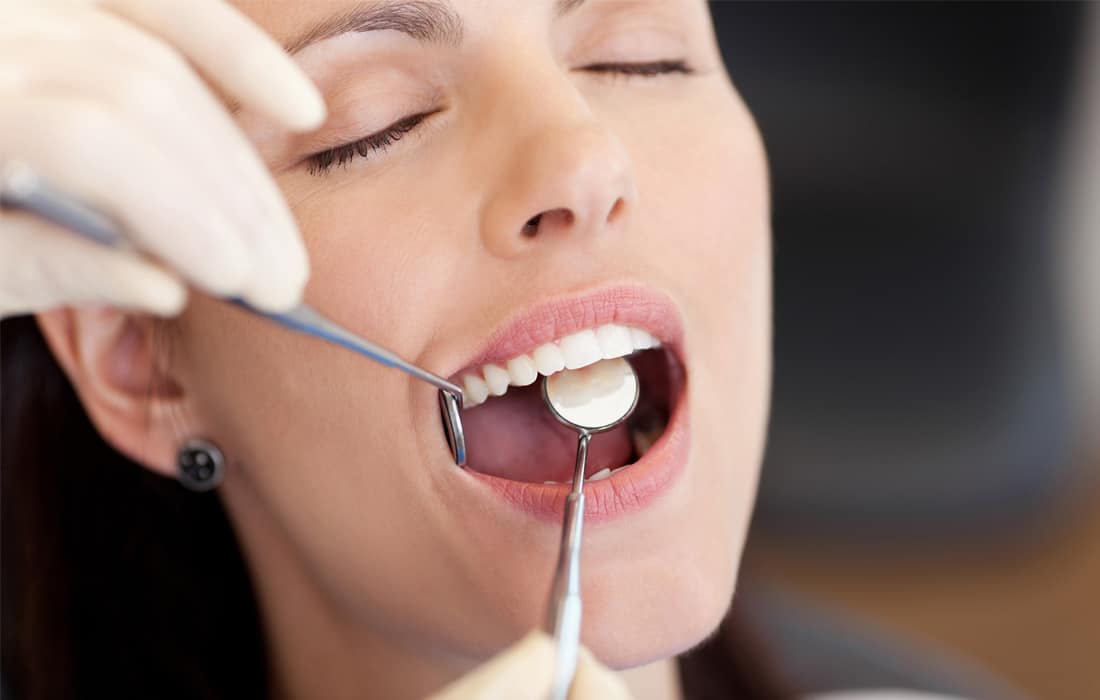Pocket Reduction Surgery Near You
Practicing good oral hygiene habits and visiting your dentist biannually sounds simple enough. Unfortunately, many people do not follow these instructions and, as a result, suffer from oral health issues. As a result, these patients endure the consequences of neglecting their oral health for an extended period of time. Fortunately, there are a variety of dental treatments and restoration procedures available to prevent further damage.
One of the most common procedures done to alleviate these conditions is pocket reduction surgery. This procedure is also referred to as gingivectomy, osseous surgery, and flap surgery. These are collective terms used to describe the series of surgeries done to access the roots of the teeth to get rid of tartar and bacteria.
It is important to get rid of bacteria time and time again because its build-up can lead to the demineralization of the tooth’s surface. Demineralization happens when bacteria found in plaque produce acids, thereby causing periodontal disease. This type of infection causes a destructive effect on bone and gum tissues. It is a progressive condition that may cause the affected teeth to deteriorate and fall out.

Reasons for the Pocket Reduction Surgery
The main goal of this procedure is to reduce the spread of bacteria to parts other than the mouth such as the bloodstream and other parts of the body to prevent the emergence of secondary infections. Also, getting rid of these bacteria can prevent the destruction of bone tissues that leads to the teeth losing their rigid anchor. It is aimed at saving the tooth and sparing it from the possibility of extraction. Overall, this surgery will give way to easier and better cleaning techniques, even at home. It will definitely make your smile look better and healthier.

How Does Pocket Reduction Surgery Work?
This involves an initial assessment through a visual examination and x-ray imaging. Under either general or local anesthesia, the gums will be pulled away from the teeth to allow for the removal of tartar and plaque. Scaling and root planing are usually done to remove any extra tough material on the tooth’s root surface. Planning is essential to ensure the gums heal without reattaching to rough or uneven surfaces. Then, an antimicrobial liquid is administered to get rid of the remaining bacteria and to promote healing. The gum will then be sutured and be left to heal for 5 to 10 days.
Post-Op Instructions
It is expected that the gum line may undergo some movement by day 5 or 7, because of the repeated pulling back of the tongue and cheek. In case the loops in the suture unwind and are left hanging, it can be easily cut by clean manicure scissors or it can be removed earlier as per the advice of your dentist. Do note that suture loosening can indicate the healing process has been smooth.
Also, you may experience tooth sensitivity to changing temperatures. This is temporary but notes that plaque accumulations can make it worse. It helps to brush regularly and use salt water for rinsing. If the condition is worse, you can utilize an over-the-counter rinse like Peroxyl for cleaning, and a prescription fluoride toothpaste or gel for decreasing sensitivity.
In rare cases, a small sharp area of bone can make its way through the gums. It is referred to as sequestrum. This usually resolves by itself. For intolerable discomfort, you can schedule an appointment with your dental office near Kissimmee to have it recontoured or removed.
The key to healthy teeth has always been within reach. It is entirely up to you to make sure you take all the necessary steps to achieve it. Learn more about oral hygiene practices and measures that can maintain good oral health by booking an appointment today.
FAQs
The pain from pocket reduction surgery is usually mild and can be managed with medication. You may feel some discomfort and swelling after the procedure, but it’s temporary and can be controlled with your dentist’s instructions.
Pocket reduction surgery is a procedure to treat gum disease by cleaning deep pockets around your teeth. Our dentist at a dental clinic near you removes bacteria and infected tissue, then repositions or reshapes the gums to help them heal and fit snugly around the teeth.
When deep pockets created by gum disease cannot be cleaned by brushing and flossing, pocket reduction surgery is necessary. If left untreated, this can cause tooth loss. Pocket reduction surgery performed by a professional reduces these pockets, making it easier to maintain healthy gums.
Our Services
- TMJ
- Braces
- Bruxism
- Sealants
- Dentures
- Retainers
- Invisalign
- Orthodontics
- Teeth Whitening
- Porcelain Crowns
- Root Canal Therapy
- Composite Fillings
- Oral Hygiene Aids
- Periodontal Disease
- Porcelain Fixed Bridges
- Cleaning and Prevention
- Bone and Gum Grafting
- Wisdom Teeth Extractions
- Dental Implants
- Oral Cancer Exam
- Porcelain Veneers
- Pocket Reduction Surgery